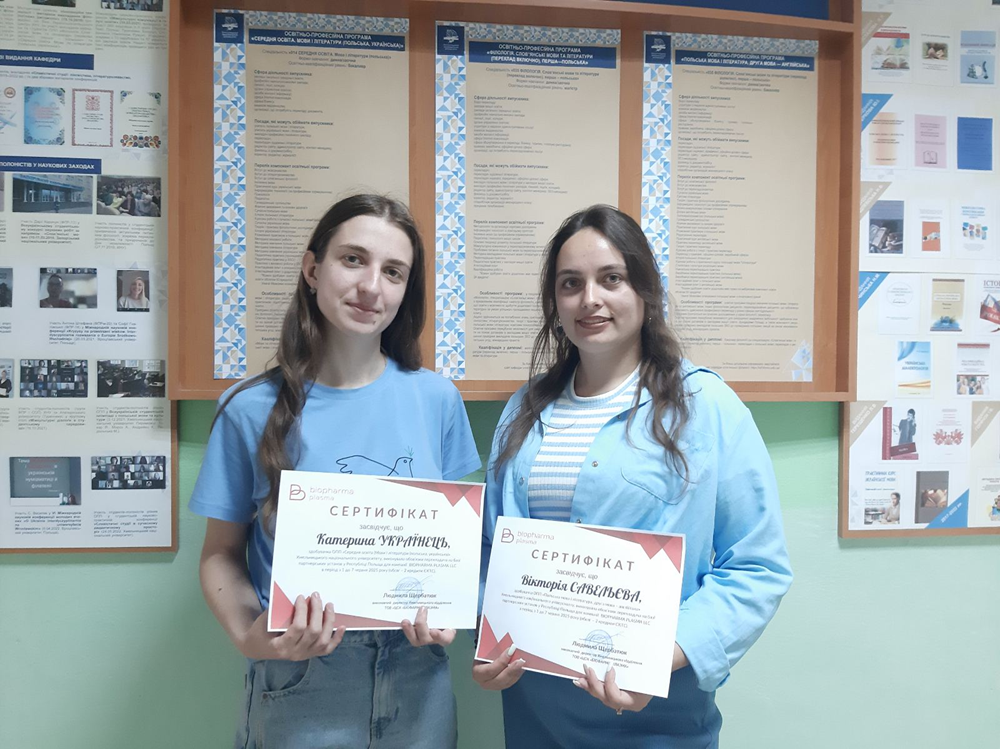From June 1 to June 7, 2025, students from the Department of Slavic Philology at Khmelnytskyi National University undertook a professional language internship in the Republic of Poland, in cooperation with BIOPHARMA PLASMA LLC. The internship involved students from the academic programs “Polish Language and Literature, Second Language – English, Translation” and “Secondary Education (Languages and Literatures – Polish, Ukrainian)”: Kateryna Ukrainets, Diana Havryliuk, Viktoriia Savelieva, Yulia Freiman, and Anastasiia Khrapak..
he internship was organized and coordinated by Svitlana Voitaliuk, Senior Lecturer at the Department of Slavic Philology, who provided preparation, coordination, and supervision throughout the internship.
The program was implemented in the format of five teams, each comprising two auditors and one translator. The students acted as interpreters, accompanying auditors in designated Polish cities and providing precise translation between Ukrainian and Polish. Their role extended beyond linguistic mediation — they also ensured effective intercultural communication, which is a key component in the functioning of international teams.
BIOPHARMA PLASMA LLC is a company that builds the shortest path between those who give help and those who need it. It is actively developing a network of modern donor plasma centres in Ukraine, offering compassionate individuals the opportunity to assist patients in need of treatment.
Since its founding in 1895, the company has remained committed to its mission — improving health and quality of life. BIOPHARMA PLASMA LLC was the first company in Ukraine to begin manufacturing medicines from donor plasma. It continues to invest in scientific research and technology and is a recognised expert in producing vital medications based on proteins and antibodies essential for sustaining life.
This internship was not only a professional challenge for the students but also a valuable opportunity to work in real-world conditions. It allowed them to apply their academic knowledge while contributing to a socially important mission — helping others through effective communication and international cooperation.
On behalf of the students and faculty of the Department of Slavic Philology at Khmelnytskyi National University, we extend our sincere gratitude to BIOPHARMA PLASMA LLC for the opportunity to undertake this language internship at your company. Your contribution to our professional development is truly invaluable. The students gained essential hands-on experience, honed their translation and intercultural communication skills, and — most importantly — became part of a meaningful mission to help people. Your support and openness enabled us to see how knowledge and linguistic competence can directly contribute to socially significant work. We are especially grateful for the spirit of collaboration, trust, and professional mentorship you provided. Your dedication to international cooperation and investment in scientific progress is truly inspiring. We are proud to have had the opportunity to work with a team that is making a real difference in the world.
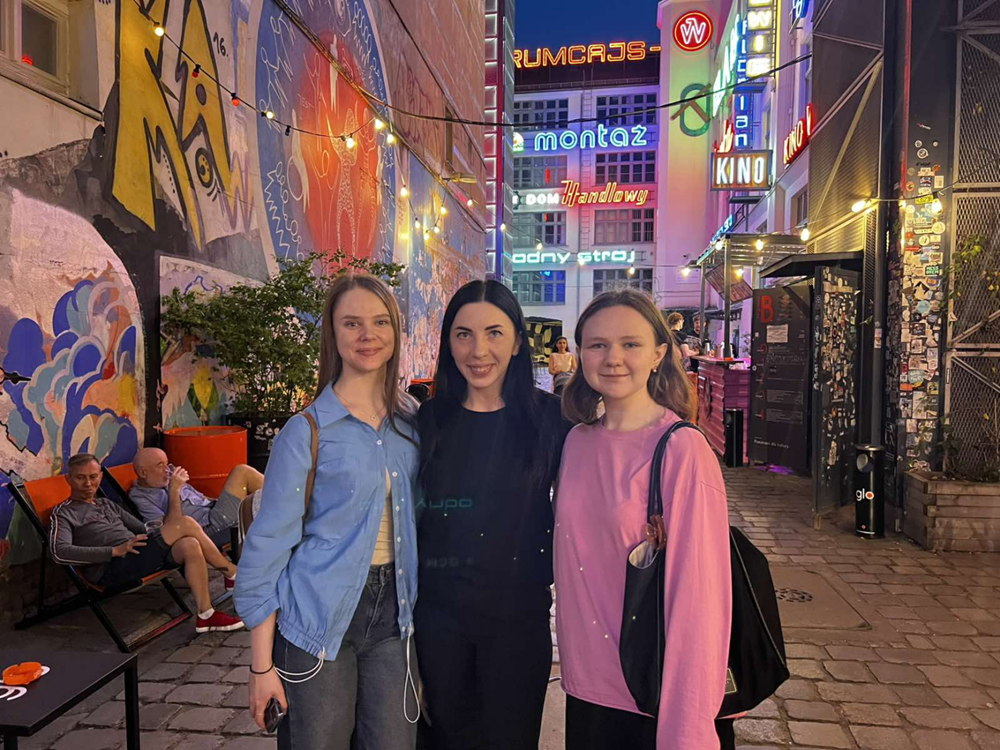
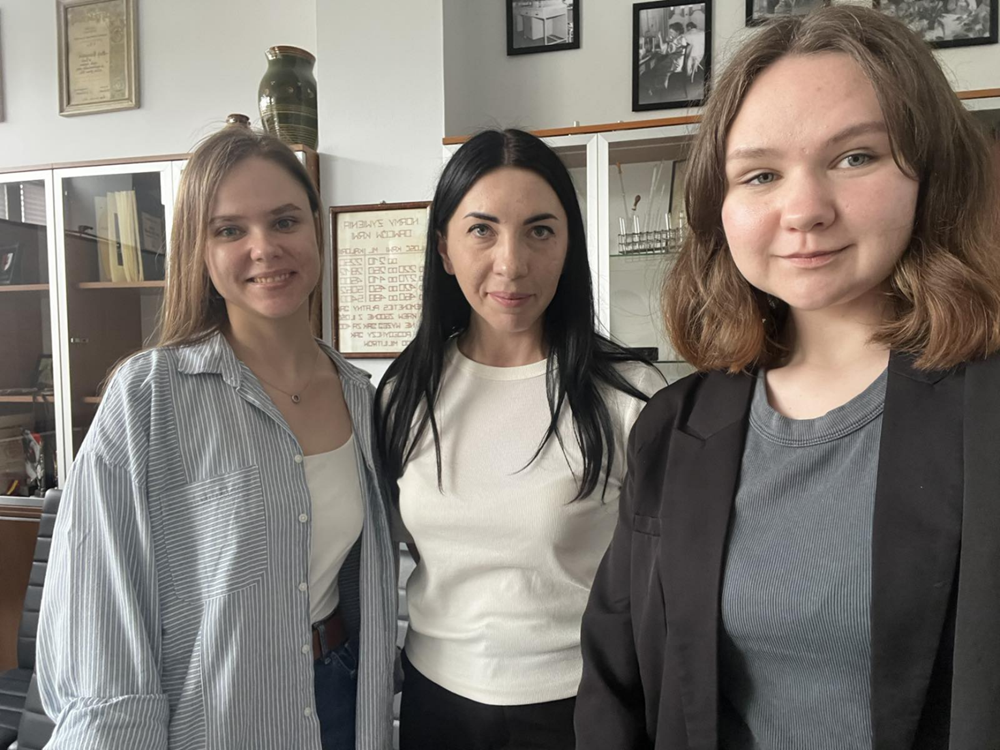
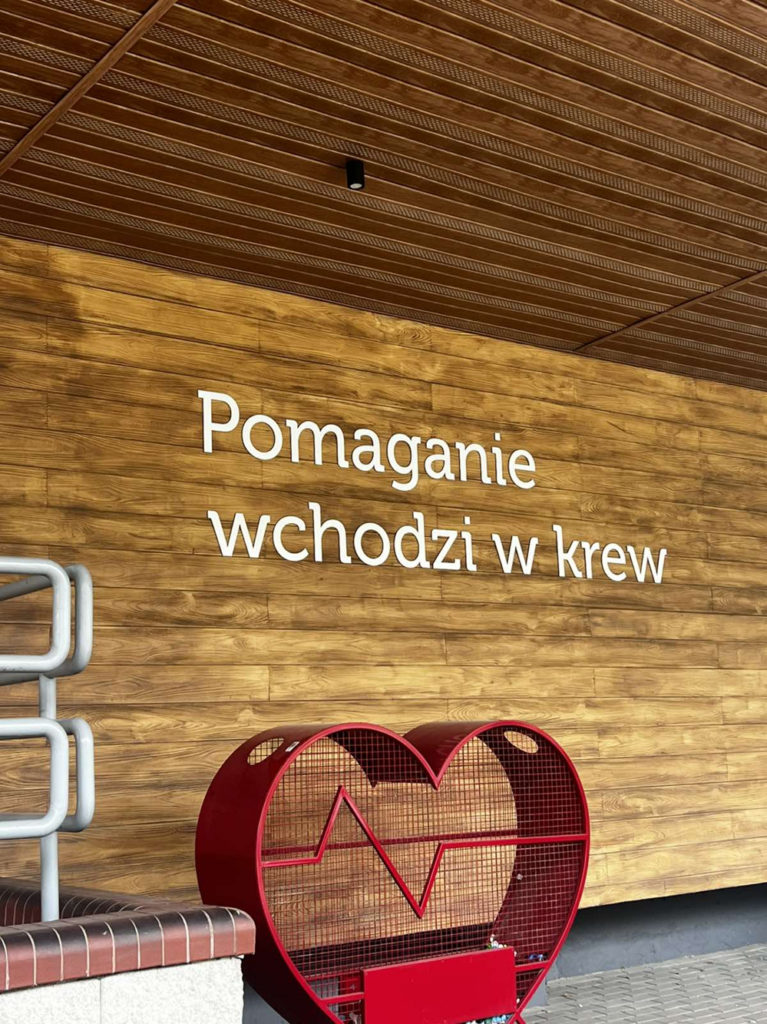
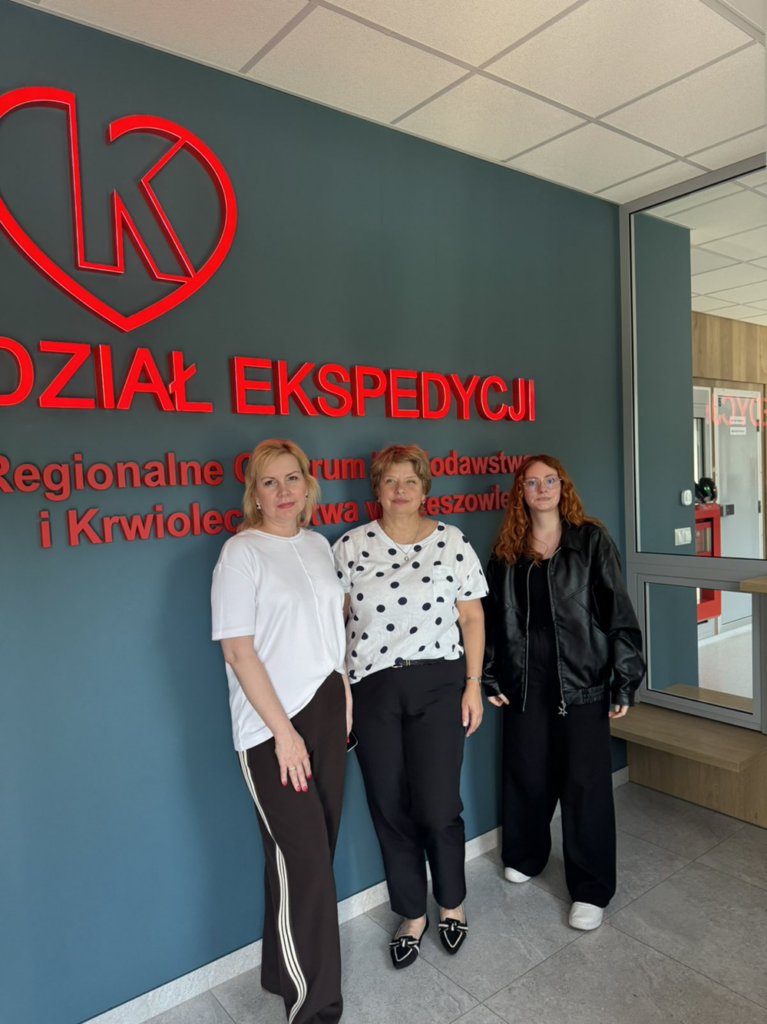
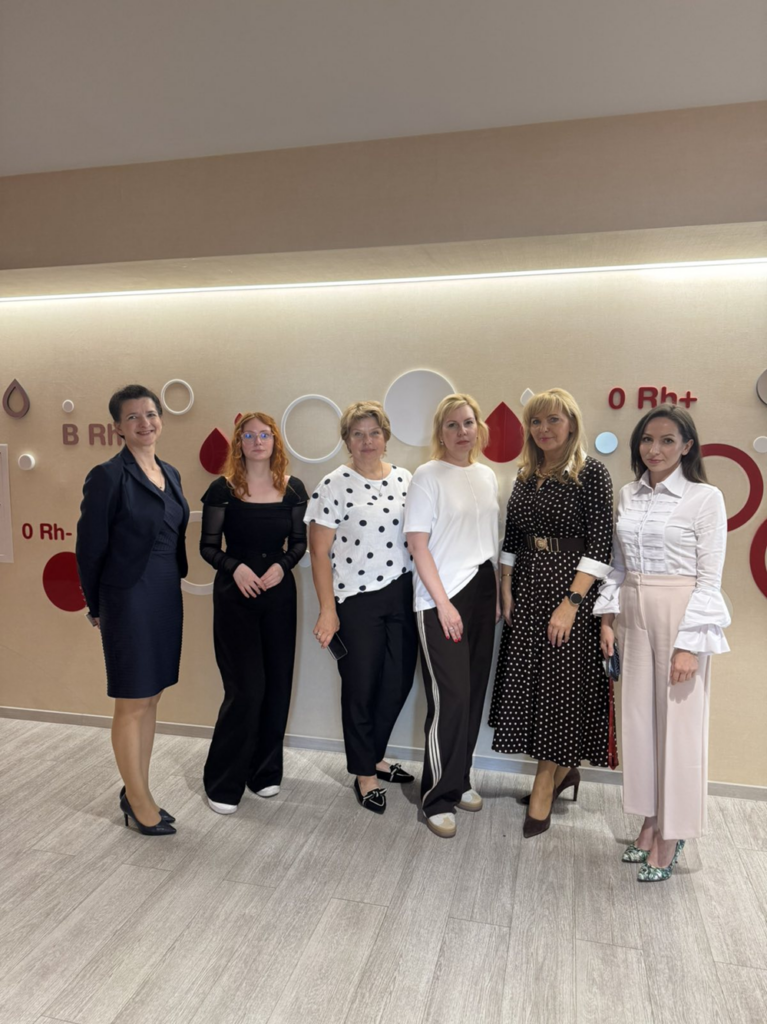
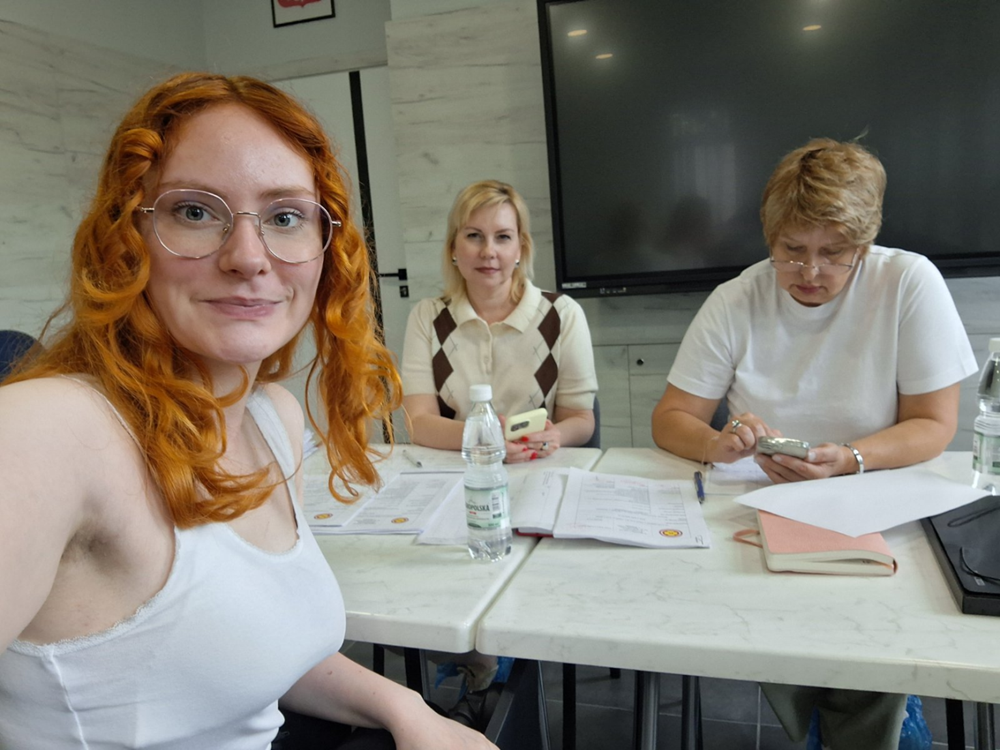
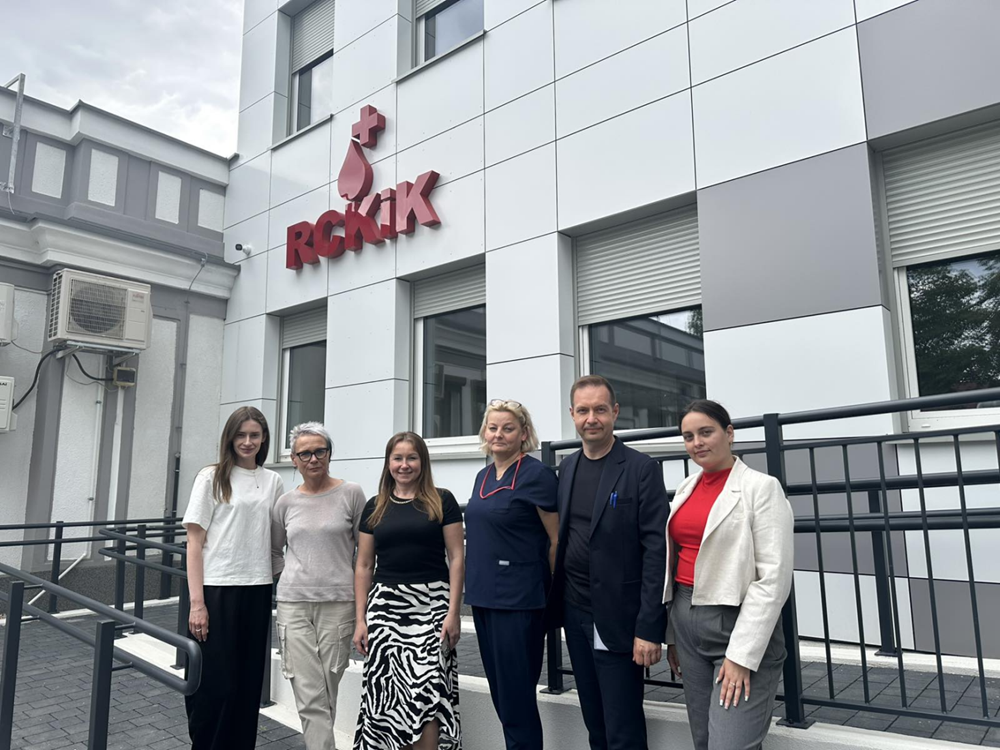
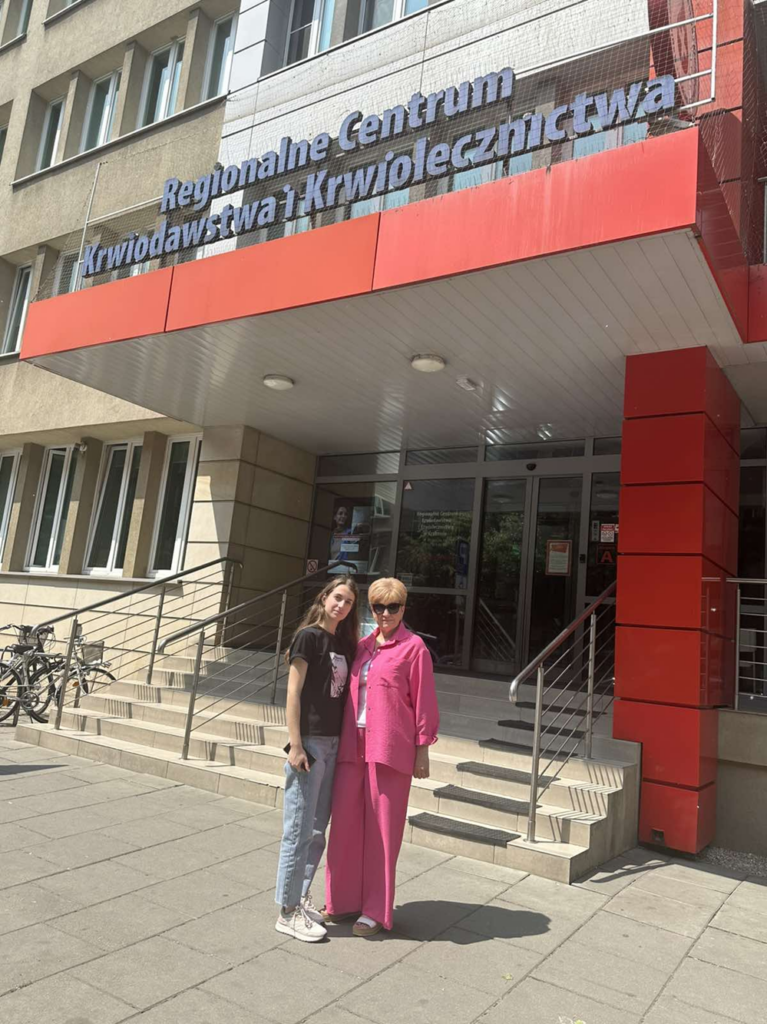
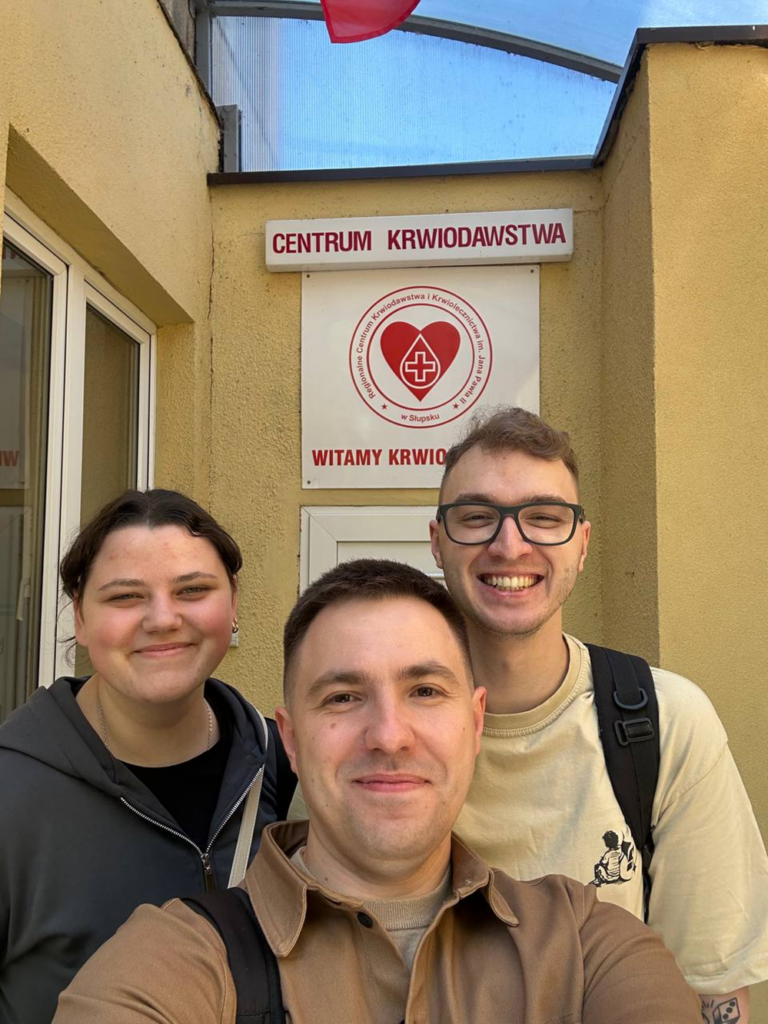
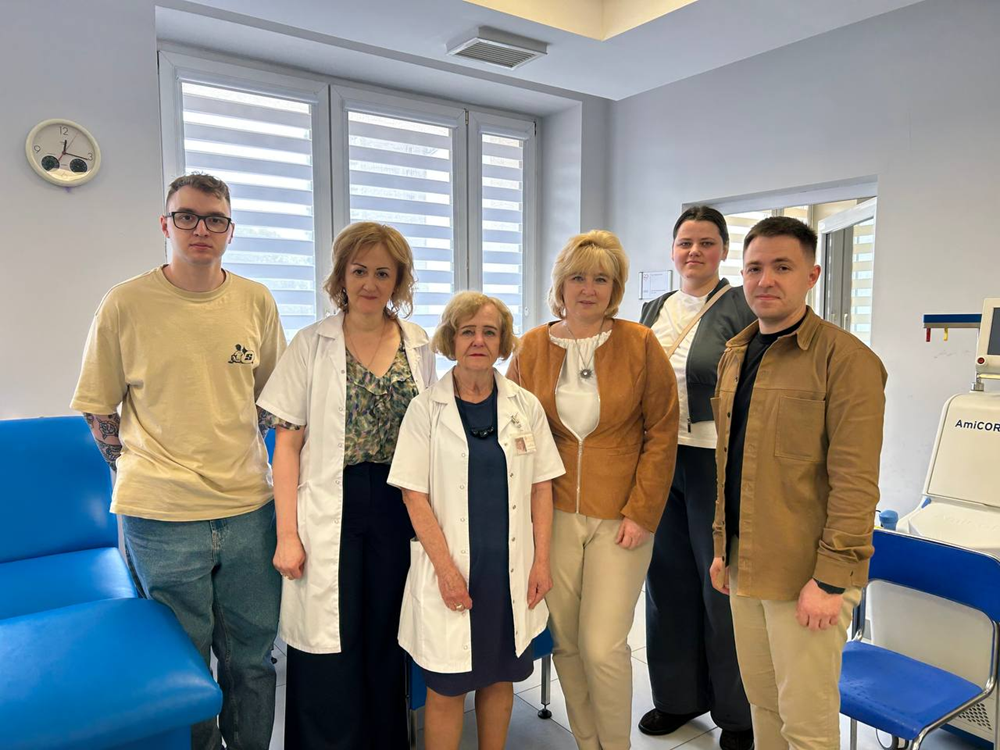
Student's review:
Kateryna Ukrainets (СОП-22-1): “As part of academic mobility, I had the opportunity to serve as an interpreter during audits at blood donation centres in Kraków and Kalisz, Poland. This experience became a crucial milestone in my professional development, allowing me to merge my linguistic competence with its practical application in medical and administrative contexts.
My role involved oral interpretation between Ukrainian and Polish. I assisted auditors from Ukraine and Polish professionals in achieving fast and accurate communication during the audits. I placed particular emphasis on terminological precision, as the discussions involved quality standards, safety protocols, documentation, and other legal matters. Through this work, I refined my translation skills in a specialised setting and gained valuable knowledge about the organisation of blood donation systems.
Overall, participating in this project as an interpreter was an invaluable experience that broadened my professional perspective, boosted my confidence, and strengthened my motivation to continue growing in the field of cross-linguistic communication.”
Yulia Freiman (ФППА-23): “My weaknesses during interpretation: I sometimes interpreted quietly, not confidently; I wasn’t always sure whether Ukrainian auditors needed interpretation; I occasionally used a translator app because I forgot some terms, which slightly disrupted communication; word-by-word interpretation into Polish didn’t work well grammatically; I sometimes made mistakes with masculine and feminine forms while speaking; I forgot to use the particle ‘czy’ at the beginning of questions, but I used rising intonation at the end of sentences; sometimes I couldn’t grasp the meaning of the Ukrainian women’s questions, but they rephrased them and communication continued smoothly; I didn’t always know where to stand in crowded rooms during small audits; I was unsure whether I needed to shake hands with directors and other individuals on the auditors’ level, which felt awkward.
My strengths during interpretation: I tried to listen carefully and memorize things in case interpretation was needed, to understand the essence; I watched others’ movements and read their emotions — if I noticed they didn’t understand something, I started interpreting immediately without unnecessary words; interpreting into Ukrainian seemed harder to me, as I was already thinking in Polish; I was able to ask questions; when auditors needed number clarification, I translated them quickly during the conversation; I didn’t stress during interpretation. In addition to oral consecutive interpretation, I also had to translate Polish documents, so I used a photo translator. This was a really great experience because I tried live interpretation and realised how complex it is.”».
Diana Havryliuk (ФППА-23-1): “The trip for the oral consecutive interpretation internship was a very interesting experience! I would like to thank Ms. Svitlana for giving us the opportunity to realise ourselves as early as the second year.
Personally, I have already identified the main aspects of interpretation. I would also like to note that we had the opportunity to speak Polish with native speakers, so I learned a lot of new vocabulary. When difficulties arose, our auditors and Ms. Svitlana, who was always in touch and supported us, helped us.
During the internship, we learned about the work system of Polish blood collection centres, which was very interesting! We had the opportunity to compare Polish centres with ours. The Polish side was very cooperative and, if we didn’t understand something, they kindly explained it to us. We also had a chance to walk around the cities where the audits were held.
We are very grateful for this experience and look forward to new projects!”
Anastasiia Khrapak (ФППА-22-1): “If I plan to work with medical terminology in the future, this was great practice for oral interpretation. Sometimes it wasn't easy because I didn’t have much background knowledge in the field of blood collection or how the system works, but thanks to the auditors who explained during the audits what each department was responsible for, I learned a lot of new and interesting things I had never thought about before. It was a pleasure to cooperate with Mr. Bohdan and Mr. Oleksandr — we quickly found common ground, and by the end of the audit, we even joked that I could review the documents myself and understand the differences between them. The only downside of the trip was the train travel, as the cities were located far apart, but overall, the impressions were positive. We met kind and welcoming people who treated us like family.”
The students’ stay in Poland and their fulfilment of interpreter duties have been officially recognised as translation practice, as confirmed by the respective certificates.
